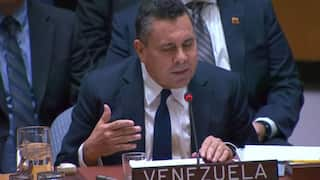Sabarimala: Kerala HC Upholds Caste Bar Allowing Only Malayali Brahmin For Chief Priest Post
The petitioners challenged the notification by the Board inviting applications from only Malayali Brahmins on grounds of untouchability.

The Kerala High Court in a recent order dismissed the petitions challenging the condition by Travancore Devaswom Board barring non-Malayali Bhramins from being appointed as the chief priests of Sabarimala-Malikappuram temples. The petitioners challenged the notification by the Board inviting applications from Malayali Brahmins on grounds of untouchability.
According to the notification only Malayali Brahmins could apply for appointment as Melshanthi (chief priest) of Sabarimala-Malikappuram temples.
A bench comprising Justice Anil K Narendran and Justice P.G. Ajithkumar dismissed the petitions saying that the conditions in the notification did not violate Article 17 of the Constitution and cannot be called an act of untouchability.
The court said that the duties of the Devaswom Board and its members are purely administrative in character to ensure regular traditional rites and ceremonies according to the practise prevalent in the religious institutions. The court took the view that Tantris are responsible for proper conduct of the poojas and religious ceremonies in line with 'Shastras.'
The court further ruled that unless statutory rules are made by the said Board, the matter of appointment of chief priests would be governed by guidelines framed by the High Court and Supreme Court.
The court further noted that the right protected by Article 25(2)(b) of the Constitution is the right to enter into a temple for the purpose of worship.
The court ruled that there is absolutely no merit in the contention of the petitioners that the conditions stipulated in the notification issued by the Devaswom Commissioner that the applicant for appointment as Melshanthis at Sabarimala Devaswom and Malikappuram Devaswom shall be a Malayali Brahmin would amount to untouchability abolished under Article 17 of the Constitution.
"As held by the Constitution Bench of the Apex Court in Sri Venkataramana Devaru the right protected by Article 25(2)(b) of the Constitution is the right to enter into a temple for the purpose of worship. It does not follow from this that, this right is not absolute and unlimited in character. No member of Hindu public could claim as part of the rights protected under Article 25(2)(b) that a temple must be kept open for worship at all hours of the day and night or that they could perform the services which the archakas alone could perform."
The court left it to the Supreme Court to decide on the question of interplay between fundamental rights and religious rights.
"In the absence of proper pleadings on Articles 25 and 26, we are of the view that there is no need to keep these writ petitions open for the larger bench of the Supreme Court to decide on the issue. However we make it clear that the contentions of both sides in this respect are kept open to be raised in an appropriate proceeding at an appropriate time," the Court said.
The petitioners had moved the high court saying that the condition that fixed a criteria for making appointments to the post of Melshanthi based on caste was violative of the fundamental rights guaranteed under Articles 14, 15 (1) and 16(2) of the Constitution.
Related Video
Punjab News: AAP Leader Shot Dead During Wedding in Amritsar





































